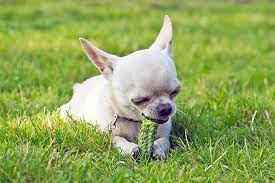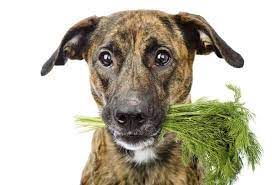
All kinds of foods frequently have dill added as a garnish. They taste better when you top cooked potatoes, rice, fish, and meat dishes with some finely chopped dill. In addition to enhancing the flavour of our food, dill is a fantastic source of calcium, iron, and many other vital elements, making our food healthier.
The addition of toppings to dog food is rare. However, it’s okay for your dog to consume dill if you want to feed them dill-flavoured cucumbers or jacket potatoes.
Do dogs eat dill?
Dill can be sprinkled on meals or consumed by dogs. Dogs should only be fed a small bit of dill, though. Your pet’s health will benefit from dill, which can help with stomach issues.
What is dill?
The solitary member of the genus Anethum is dill (Anethum graveolens), an annual celery plant (Apiaceae). The leaves and seeds of dill are widely cultivated in Eurasia, where they are used to flavor cuisine.
Dill smells faintly of licorice and has a mild, grassy flavor. The dill plants flower as soon as it gets hot outside, which alters the flavor and increases the leaves’ bitterness. Dill seeds are a spice in cooking and have a faint caraway flavor.
Dill’s benefits for dogs
Increases digestion
Dogs frequently experience stomach problems. This is not surprising, given that many of them are continually collecting any food scraps they can get their hands on. Dill may be very helpful if your dog experiences this since it is known to help with digestion and relieve bloating, nausea, cramps, and constipation.
Freshening breath
Dill, a parsley family member, works well to freshen your dog’s breath. Its antibacterial characteristics, which can aid in the fight against bad breath and even gingivitis by germs, are the reason for this.
Antioxidants
Kaempferol and vicenin, two flavonoids having antioxidant effects, can be found in dill. Anti-inflammatory, anti-cancer, cardio-protective, neuro-protective, and anti-diabetic qualities are just a few of the health advantages of kaempferol.
In turn, vicenin can assist in preventing oxygen-induced, radiation-induced, and free radical damage to cells and chromosomes that can result in chronic disorders like cancer and joint and organ disease.
Anti-inflammatory
Dill is a fantastic choice for dogs with arthritis, intestinal issues, or other inflammatory illnesses because it has anti-inflammatory effects. Its juice, applied topically, helps relieve skin irritants and lessen inflammation, including heat rash.
Dill, yarrow, and motherwort are supposed to work well as a flea rinse. Additionally, it is believed that the naturally occurring molecule carvone, which is found in dill, improves the effectiveness of other natural pesticides. Ground dill seeds can also repel intestinal worms.
Minerals and vitamins
Vitamins and minerals found in dill are beneficial to people and dogs alike. One teaspoon of dill seed has trace levels of salt, potassium, calcium, iron, magnesium, phosphorus, zinc, thiamine, riboflavin, niacin, and vitamin A, as well as a range of amino acids and fiber.
Additionally, it contains limonene and nitrofuran, which increase the synthesis of enzymes that fight cancer. One such enzyme is glutathione S-transferase, which interacts with specific cancer-causing substances and eliminates them from the body.
Can dogs eat meat?
The majority of dogs do great on well-cooked, lean meat chops. Remove any visible fat, including the poultry’s skin. Before giving the meat to your dog, make sure it is free of bones.


Leave a Reply